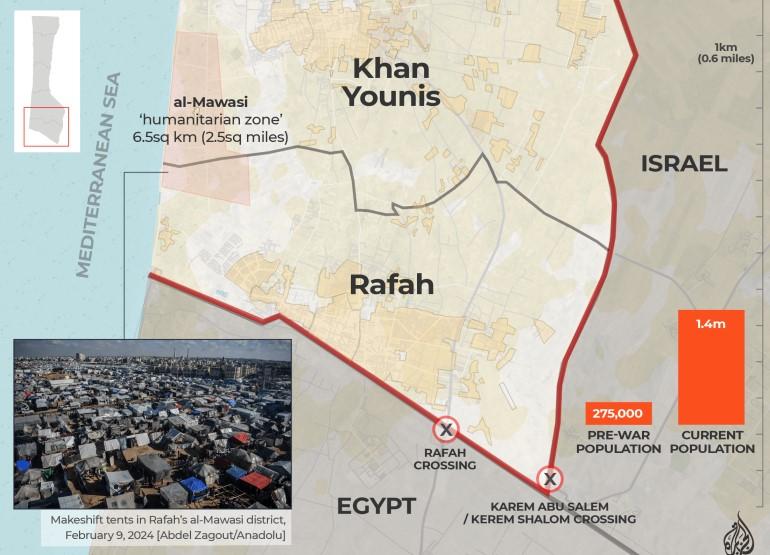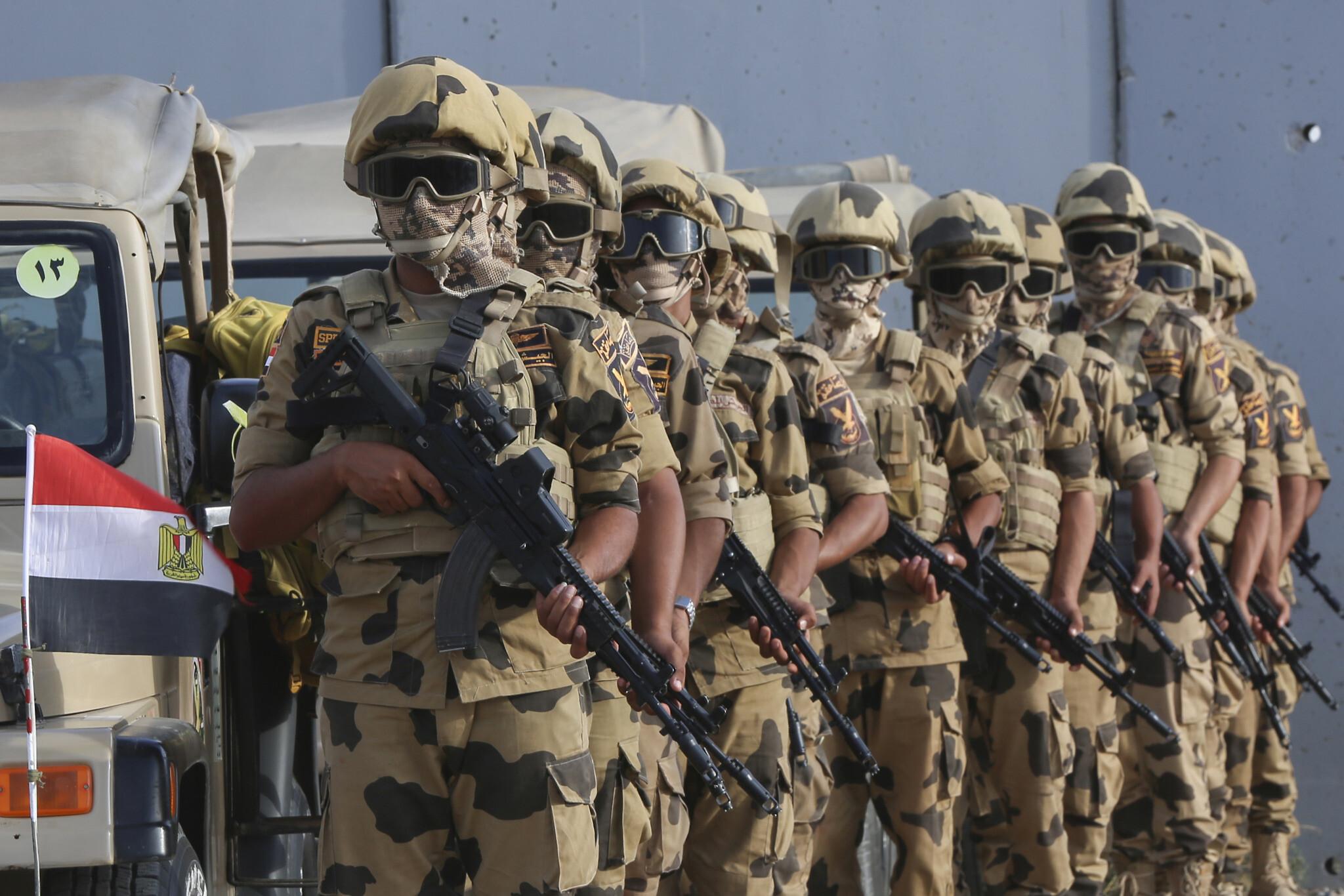Israel’s operation in Rafah may drag region into prolonged war Impending offensive
On February 12, Israeli Air Forces conducted intensive air strikes on multiple locations in Rafah, an area between the Gaza Strip and Egypt. As a result, many civilian casualties occurred that further contributed to international condemnation of the Israeli government.
Since the start of the counteroffensive against the Hamas militant organization in the Gaza Strip, approximately 1.4 million Palestinians have now been pushed into Rafah by frequent Israeli bombings that have killed nearly 30,000 Palestinians. Rafah was already one of the most densely populated cities in Gaza before October 7, housing about 280,000 people.
The UNUN officials and humanitarian organizations alike have warned that further attacks on the city would be catastrophic for civilians sheltering there, who remain physically trapped between Egypt to the south, Israel to the east, and the Mediterranean Sea to the west. While the Israeli attacks aim to destroy Hamas's backbone in the area, they strained Tel Aviv's relations with neighbouring countries, particularly Egypt.
Egypt has condemned the Israeli military campaign on Rafah in the southern Gaza Strip, stressing its complete rejection of statements issued by high-level officials in the Israeli government regarding a potential military operation in Rafah. In turn, Cairo called for concerted international and regional efforts to prevent the targeting of Rafah.

Egypt’s bellicose rhetoric toward Israel amid the war in Gaza could be seen as a worrying signal as the former remains one of few countries that did not sever diplomatic ties with Tel Aviv since the war outbreak. The potential diplomatic standoff with Cairo may further complicate volatile regional safety and overshadow regional partnership.
In the wake of the Rafah assault, Egypt had deployed some 40 tanks and armoured personnel carriers to northeastern Sinai within the past two weeks as part of a series of measures to bolster security on its border with Gaza.
Reportedly, in order to calm the situation, Israeli security officials assured Egyptian colleagues that Israel would not make any unilateral moves and that they would work in coordination with Cairo.
It appears that the Israeli government is worried about worsening relations with Egypt, which recently threatened to suspend its peace treaty with Israel if it sends troops into Rafah, where Cairo fears fighting could force the closure of the besieged territory’s main aid supply route. On the other hand, unlike other Arab countries, Egypt puts pressure on Hamas to reach a “hostage deal with Israel” in order to be able to reconcile and end the violent war.
The Egyptian authorities, another US key ally in the region, push the narrative that Israeli force's assault on Rafah would worsen the already catastrophic humanitarian situation in Gaza, where around 80% of residents have fled their homes and where the UNUN says a quarter of the population faces starvation. Moreover, Egypt believes that the Israeli government plans to force civilian Palestinians into Egypt, as President Abdul Fattah al-Sisi stated it would "drag Egypt into the war".

Nevertheless, Israel will unlikely cease military operations in Gaza, and Rafah, on the contrary, will boost ambush on Hamas and its affiliations beyond the Gaza Strip. For example, since January 2024, Israeli security forces conducted several accurate operations to kill Hamas and Hezbollah top commanders on Lebanese soil.
For instance, in February, the Israeli military said its special forces had carried out a strike in the area of Ayta al-Shaab in south Lebanon "to remove a threat" and that its aircraft also struck a Hezbollah anti-tank missile launcher in the region. The Israeli military rarely acknowledges operations by its special forces. It did not say where specifically they had operated or what kind of threat they had removed.
The biggest fear of regional states and international organizations regarding Israel's operation in Rafah is the potential dire humanitarian consequences. At present, there are only two border crossings for transmitting humanitarian aid—the Rafah crossing (from Egypt) and the Kerem Shalom/Karem Abu Salem crossing (from Israel)—both of which transmit into the Rafah governorate.
Even though President Joe Biden's administration critically approached Israel's operations in Rafah, it in fact did not take any visible measures to prevent the mounting casualties and contain rising antisemitism in the Middle East and beyond.








